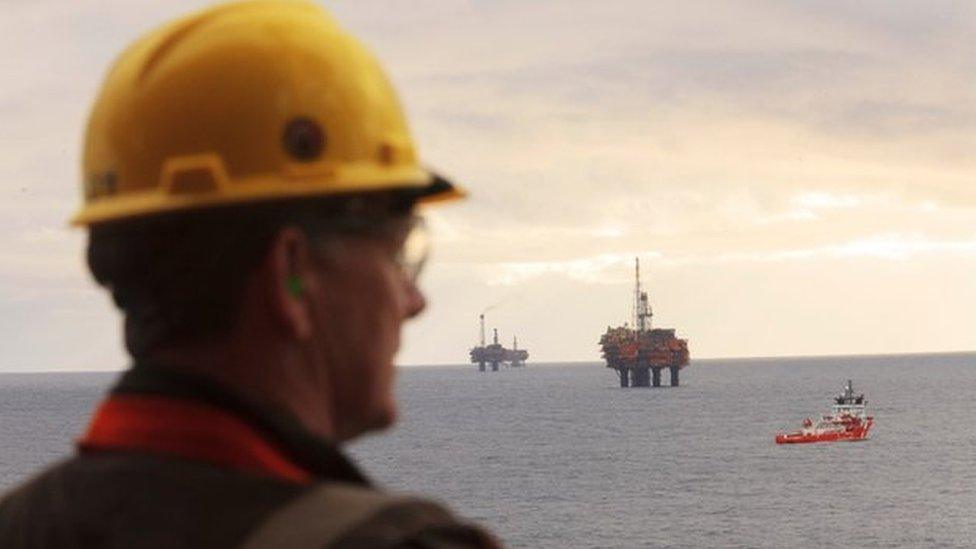North Sea tax receipts slump to £35m
- Published

Tax receipts from offshore oil and gas slumped to just £35m in the last financial year, according to figures from HM Revenue and Customs.
The figure is the lowest recorded since the early days of North Sea production.
Corporation tax from offshore drilling raised £538m but that was offset by rebates on Petroleum Revenue Tax, totalling £503m.
The latest figure compares with £2bn of tax revenue in the 2014-15 financial year.
Four years ago, the Treasury raised £11bn from the two sources of tax on offshore production profits.
Much of last year's fall reflects lower profits from oil and gas, after the oil price slumped, as well as tax deductions for a high level of investment.
Tax rates were cut by Chancellor George Osborne during the most recent recorded year.
The Office for Budget Responsibility has forecast negative tax returns for the next few years.
Industry 'struggle'
Responding to the tax figures, industry body Oil and Gas UK's economics director, Mike Tholen, said: "At around $40 per barrel, oil is still more than 60% lower than it has been over the last three years.
"In these conditions, the UK North Sea industry will continue to struggle to sustain its current scale.
"More than £330bn in 2014 money has been paid to date on UK oil and gas production, however, HM Treasury has noted that tax take on production will fall in 2015-16 and fall further by 2021.
"Despite the projected fall in production taxes which is a consequence of the current low oil prices, industry will remain a significant employer, provider of energy security, hub of innovation and leader in the export of goods and services to overseas markets."
He added: "Although the sector has seen success recently in reducing its cost to produce a barrel of oil or gas by a third, unfortunately the indications suggest that the oil price will remain lower for longer, so it's crucial the pace of these efforts doesn't abate."
'Wake-up call'
Conservation charity WWF Scotland director Lang Banks said: "The problems currently affecting tax receipts and jobs in the North Sea should act as a wake-up call to government of the urgent need to prepare for a future where we are all less dependent on oil and gas.
"While it's true that the oil and gas industry will continue to be a major contributor to our economy for some time, now is the time to be setting out a clear plan to sensibly transition away from dirty fossil fuels.
"We need to see a just transition that enables us to harness the engineering skills currently deployed in the North Sea and apply them to supporting a range of cleaner forms of energy production."
- Published22 April 2016